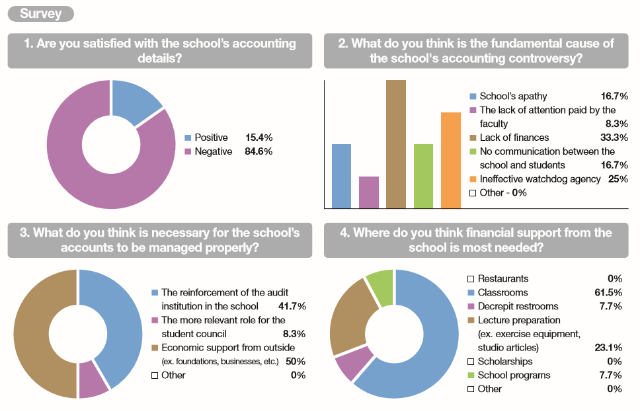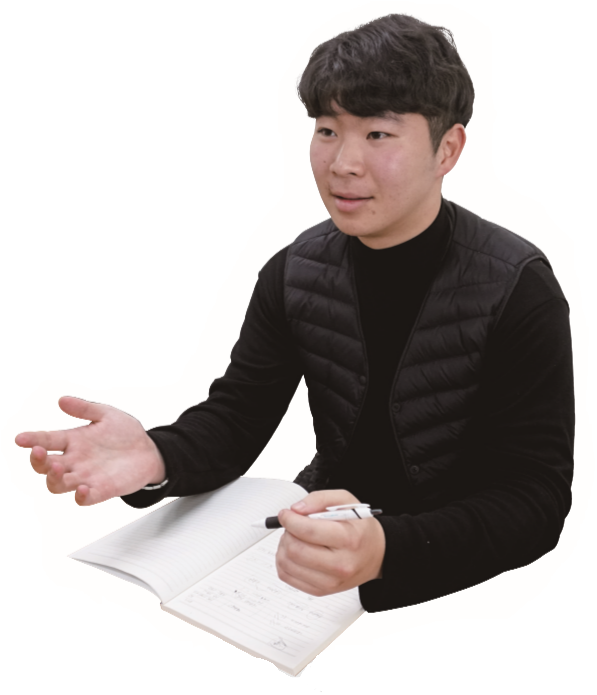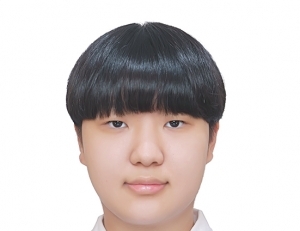Accumulated Money, for Whom Does It Exist?

The school’s management of financial resources became controversial after several facts about the school’s finances and their use were reported by a student to the school community. According to the writing of the student, the reserves of our school (the remainder after saving and withdrawing money) which were accumulated from 2014 to 2018 ranked in the top eight of universities across the country, but only about 2.5 billion won, or 7.5 percent of the total was used, for students. The content angered students and raised questions about where the large amount of money was spent and why the investment in students was so small. Students want answers to these questions, but there is no way to find out as a student and no one will tell them whether the money was used correctly or not. Therefore, the Pharos tried to answer students’ questions by investigating how the school was run with regard to the reserves and by reporting the perspectives of the school and student council. Also, students want to find out what other students think about the school's attitude and where students think the school’s reserves should be used.
“Accumulated money” means funds accumulated in separate funds for a particular purpose and is divided into research, architecture, scholarship, retirement, etc, funds according to their purposes. The building reserves typically account for the largest portion. Moreover, they are used in many ways for the development of universities, including education facilities, student education, and the study of faculty members. This resource is mostly accrued from the tuition paid by students. Then, is it really being used according to its stated purpose? According to the Korea Higher Education Research Institute, Kyonggi University ranked 49th among 154 schools in terms of accumulated reserves at private universities in 2016. This ranking includes 11.9 billion won in carryover money, so it is not much higher than other schools when it comes to only reserves. However, it ranked 12th in the list of universities with more than 10 billion won in reserves in 2016 compared to 2012. Specifically, the reserves increased from about 10 billion won to 34.5 billion won in four years, and the rate of increase was very steep compared to other universities. Why on earth did the school need to accumulate so much money, and why didn’t the school disclose it?
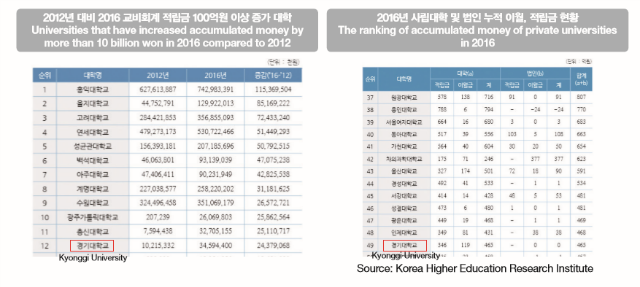
In addition, Kyonggi University ranks eighth in the cumulative reserve list from 2014 to 2018, according to data audited by Kim Hyun-ah, a member of the National Assembly’s education committee, a fact that was controversial among the school community. Students were angry about the significant amount of withdrawals against the accumulated reserves, not just the sum of the reserves, and eventually the issue became the center of a campus controversy. It should be noted that most schools that ranked at the top of the cumulative reserve list also had significant withdrawals, with an average investment ratio of more than 40 percent. However, Kyonggi University only withdrew 7.5 percent of the funds, and that raised students’ complaints. The school must think carefully about why no school investment was made after accumulating funds for a specific purpose, where the large reserves that remain, excluding necessary withdrawals, are to be spent, and why this information was not disclosed to students and school members.
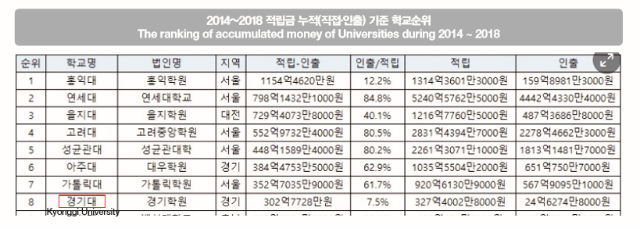
Students were shocked by the details of spending in the school and criticized how the school’s operations could proceed smoothly. In order to listen specifically to students’ thoughts, the Pharos decided to conduct a survey of students to ask for their opinions about the school's financial management and find out where the funds are needed.
< Survey >
1. Are you satisfied with the school’s accounting details?
- Positive 15.4%
- Negative 84.6%
2. What do you think is the fundamental cause of the school's accounting controversy?
- School’s apathy 16.7%
- The lack of attention paid by the faculty 8.3%
- Lack of finances 33.3%
- No communication between the school and students 16.7%
- Ineffective watchdog agency 25%
- Other 0%
3. What do you think is necessary for the school’s accounts to be managed properly?
- The reinforcement of the audit institution in the school 41.7%
- The more relevant role for the student council 8.3%
- Economic support from outside (ex. foundations, businesses, etc.) 50%
- Other 0%
4. Where do you think financial support from the school is most needed?
- Restaurants 0%
- Classrooms 61.5%
- Decrepit rest rooms 7.7%
- Lecture preparation (ex. exercise equipment, studio articles) 23.1%
- Scholarships 0%
- School programs 7.7%
- Other 0%
When students were asked if they were satisfied with the school’s accounting details, 84.6 percent of them responded negatively. Asked what caused the school’s accounting problems, 33.3 percent answered the school’s insufficient financial resources, while 25 percent said it was an ineffective watchdog agency. Other students also answered that the problem was caused by the school’s inability to communicate with students and the school’s indifference. As for a way of dealing with the school’s accounting problems, 50 percent said the school needs support from outside, such as from foundations and businesses, and 41.7 percent said the school should strengthen its audit institution. Many students answered that the school needed financial support the most for classrooms and 23.1 percent answered for lecture preparation like exercise equipment, studio articles, and so on. In addition, 7.7 percent responded that money was needed to repair decrepit restrooms and improve school programs.
In the survey, some students responded that the school’s accounting problems needed the input of the student council in order to be resolved. If so, is the student council moving to become aware of these students’ opinions and understand the situation? The Pharos interviewed the With Us Student Council president, who will represent the voices of the students at Kyonggi University in 2020, as the Pharos wondered what the With Us Student Council thought of the financial resource management issue and how the student council would behave in relation to the accounting problems.
Q. Please introduce yourself briefly.
A. Hello, I’m Cho Young-hoon, the 33rd president of the With Us Student Council, and I’m majoring in sports health science.
Q. What does the With Us Student Council think about the current reserve fund controversy?
A. The student council sees the school accounting problems affecting various parts of the school right now. It’s something that we saw in the school community and the press last year, and we think the school should invest in those areas. We are preparing to request the data officially from the school at present, and we think the school has many places to invest the accumulated funds, so we will make efforts to support student welfare reasonably with investment as much as possible.
Q. How would the With Us Student Council respond and resolve the growing complaints from students due to the significantly lower investment in the school compared to other schools?
A. Compared to schools that are similar in scale to our school, our school's annual budget is small. Also, as a large proportion of the funds that the school uses are for normal operational expenses, we will continue to ensure that tuition is used for reasonable budgets through committees and meetings. The work the student council can do is to maximize student welfare and educational rights within the limits of the accounts and budget currently available. Hence, I think we should consult with the school to attract as much investment as possible for research, facilities, and education rights for students from outside the Ministry of Education.
Q. Is there an organization in the With Us Student Council that can monitor the school's fund management? If so, how does the organization operate?
A. The organization that can monitor and deliberate on the operation of the funds is a joint student-administration committee. The organization is called the “Tuition Deliberation Committee,” and it consists of the Director of Student Support, who is the president of the Tuition Deliberation Committee, five members from the school side, five members from the students’ side and one outside committee member. The school side members are composed of the planning director, general director, budget team leader, finance director and student support team leader. The student side members are composed of the president of the student council, the vice president of the student council, and the three presidents of the colleges. The current committee has appointed one outside committee member, who is a former accountant and works for an accounting firm. He was appointed as an auditor and oversees a total of 12 members.
As of last year, this committee reviews the one-year budget in preparation for the budget’s execution and pays particular attention to the factors that increase or decrease the budget for the year. The committee determines how the tuition is spent, including on businesses and outside funding, as well as the budgets for school scholarships, facility maintenance, audit appointments, and faculty salaries. The student council can ask about tuition and school expenses and ask about unfair expenses in the committee. The committee recently held its first meeting and will finalize the school’s budget after a few meetings have been held. If there are further deviations from the plan, the committee will discuss whether the budget needs to be amended. Meetings are usually held in January and February, and additional budget problems are addressed at the end of the semester.
Q. Some students are unhappy with the lack of support from the school. Does the With Us Student Council have any other ideas or suggestions?
A. I also recognize that concern as a student of the College of Physical Education. I understand that the tuition fee for students at some other colleges is about 3.2 million won, while the tuition for the Physical Education College is about 3.8 million won and the tuition for the Art College is over 4 million won. In the case of the Physical Education College, there are practical classes and students of the Physical Education College pay for them every time they take a class. “Expenditures for Experimentation Practical Training” must be paid by students of the college, but if the students go outside the school they will have accommodation, rental and equipment fees, and so on, so it’s not affordable in some cases. In particular, the Physical Education and Art Colleges need additional facilities such as a workroom or gym or drawing tools. Therefore, the student council is going to present its opinion to the Tuition Deliberation Committee, and the student council thinks the budget should be amended to increase the number of places where there is a lack of expenditures for experimentation practical training and to increase the number of places that are free.
If students want to comment on these issues, I encourage them to make suggestions to the student council of their college in addition to their recommendations. The central steering committee receives welfare requests from colleges and municipalities. There is a suggestion box, but if students give a lot of opinions to the student councils of their colleges and the university, I think the student councils of the colleges will be able to accept the students’ opinions and more effectively appeal to the school for assistance. If students do not speak to the student council and instead give feedback to an unidentified community, it is difficult to identify and accept the opinions. Thus, I encourage students to use Facebook or KakaoTalk accounts that are run by the student councils of the colleges. If it’s hard to talk to the student councils of the colleges, please feel free to send us students’ opinions on the Facebook or KakaoTalk Plus accounts of the With Us Student Council. The With Us Student Council will try its best to resolve students’ problems.
Then, what do other members think about the school’s reserves and financial management? In an interview with Jin Hee-kwon, a professor of the Department of Law, who is head of the professors’ association, we listened to the professors’ opinions regarding the controversy.
Q. What do you think about the school using only about 7% of its reserves?
A. It depends on what kinds of reserves are used and for what purposes, such as the reserves that include donations or reserves that provide a certain amount of money for each year's normal expenses. I know that there are certain cases in which the purpose is set. If it’s a building-related reserve, then it's right to use it for building. In addition, what percentage of the total reserves is used is going to be the next question.
Q. Is there any organization in the school that reviews and inspects the financial management of the school?
A. The school audit body for the school’s financial management has an audit office directly under the president’s. However, since it is not an independent organization, it is questionable whether it will oppose the administration’s opinions or be properly audited for misusing funds.
Q. Is there any way for students to know about the financial management of the school?
A. As far as I know, there are assemblies in which student representatives have an opportunity to participate in the deliberations of the tuition-related committee held during the winter vacation to look into the overall financial operation of the school as well as raising tuition fees. Through such a committee, I think students will be able to look at the financial management of the school administrations and present their opinions.
Q. What do you think the school should improve in order to increase the investment rate for students?
A. I understand that the school is looking for many support measures for students, such as raising the scholarship rate. Making lots of programs related to extracurricular needs is intended to improve the school’s evaluation, but it is also part of the school’s efforts to provide students with support in various areas as well as enhance education related to the curriculum. However, I think there is a lack of communication with students on such issues. In my opinion, it would be more efficient to know what students want and invest in those things.
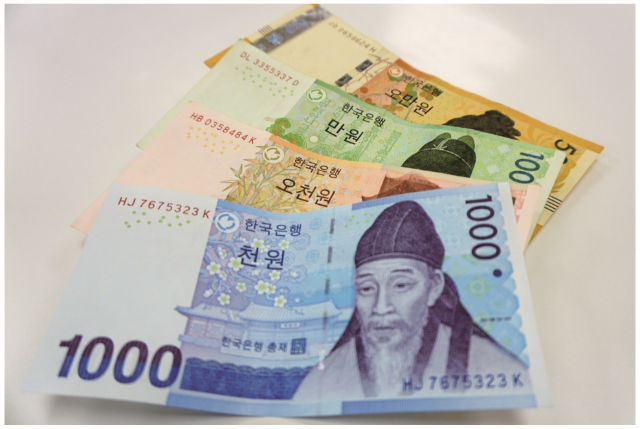
The reserve fund is a necessary fund for the operation and development of the university. However, it is an obvious problem to put priority on accumulating reserves while neglecting poor educational conditions. The financial management of the school is also a sensitive matter for students because it is directly related to the development of the school. However, a few students still don’t even know that the school's reserves exist because the school has not made this information public. The school and corporate body need to move in a more developmental direction, not continue the policy of silence of the administration. Moreover, the school must carefully consider where it will truly support educational development. In addition, since the owners of the school are the students, transparent disclosure and smooth communication are essential to address students' questions about accounting and financial management issues. The Pharos hopes that students' tuition fees will not go down the drain because of poor financial management. Finally, for efficient fiscal operation of the university, it should be clarified for whom and for what purpose the reserves exist and what use should be made of the reserves in the future.
Management Editor•CHOI SOYEON•clara3003@naver.com
Planning Editor•KIM JIN•coo0714@naver.com
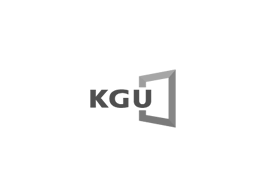 Freedom Given to Youth: An Opportunity for Choice or a Burden of Constraint?
“Are we truly free today?” Classical literature is far more than time-honored stories. It offers profound insights into human nature and society that transcend time, remaining a valuable resource for examining the challenges our world faces today. This article will draw on George Orwell’s 1984 and Charles Dickens’ Oliver Twist to explore the contemporary issues of youth housing and the emergence of a surveillance society ...
Freedom Given to Youth: An Opportunity for Choice or a Burden of Constraint?
“Are we truly free today?” Classical literature is far more than time-honored stories. It offers profound insights into human nature and society that transcend time, remaining a valuable resource for examining the challenges our world faces today. This article will draw on George Orwell’s 1984 and Charles Dickens’ Oliver Twist to explore the contemporary issues of youth housing and the emergence of a surveillance society ...

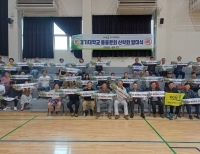 [단신] 산악회, 본교 동문의 버팀목이 될 수 있도록
[단신] 산악회, 본교 동문의 버팀목이 될 수 있도록
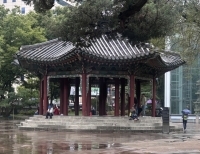 [사회메인] 노인 인구 1,000만 시대, 준비 없는 사회가 불안해
[사회메인] 노인 인구 1,000만 시대, 준비 없는 사회가 불안해
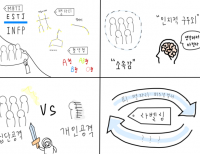 [네컷만화] 라벨링 문화
[네컷만화] 라벨링 문화
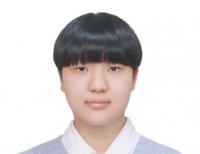 [진리터] 결국 우리 모두 돌아볼 것이니
[진리터] 결국 우리 모두 돌아볼 것이니

 목록
목록







